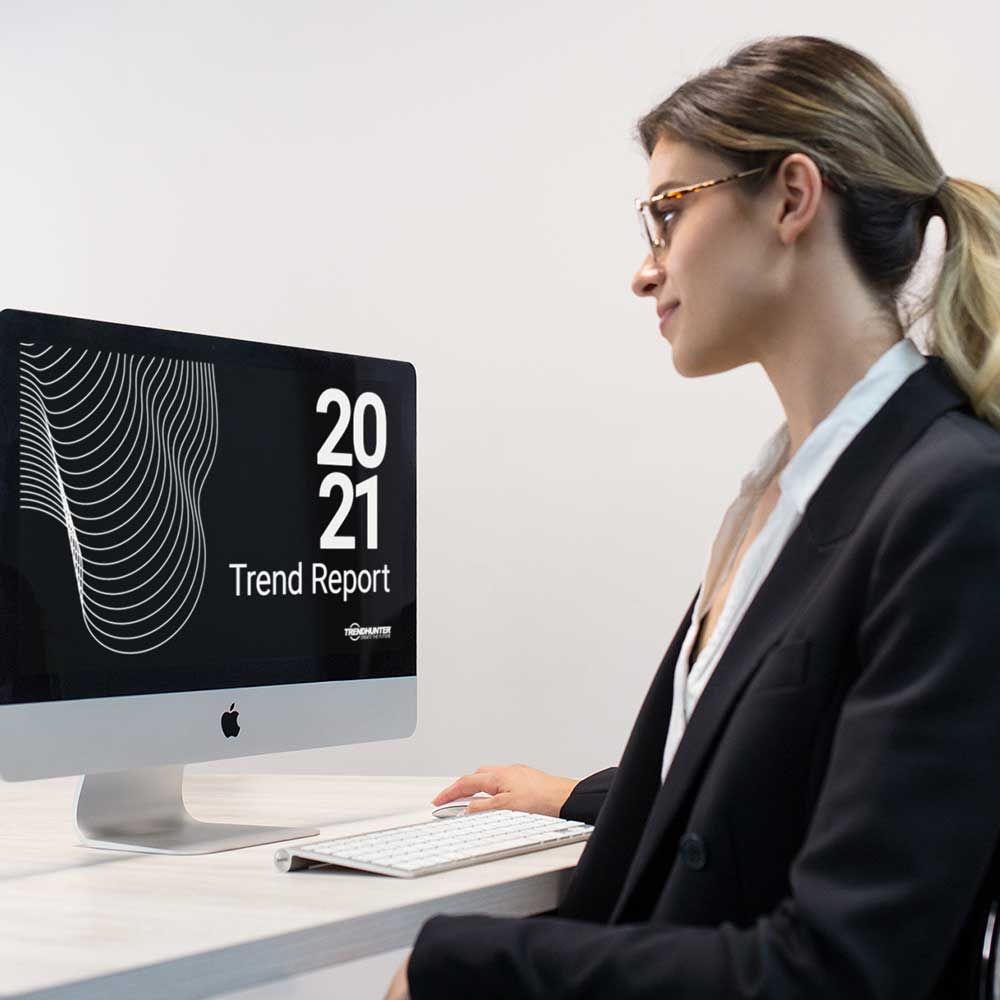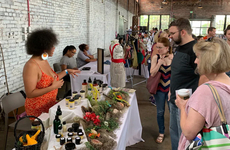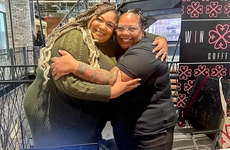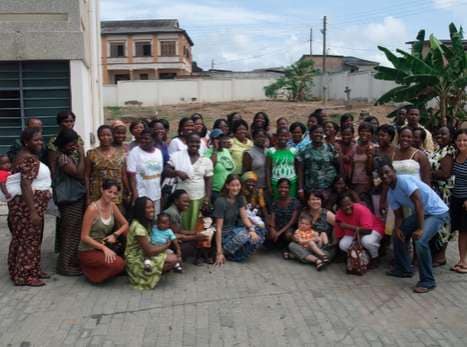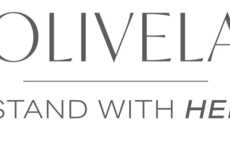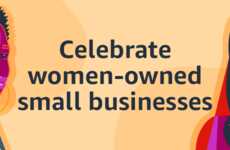
Empowering Women Through Employment
Bianca — March 23, 2012 — Social Good
References: globalmamas.org
Global Mamas is a female-owned social enterprise focused on empowering women through employment. It was founded in 2002 by Renae Adam and Kristin Johnson who were inspired after working together with the US Peace Corps in Ghana from 1992–1995. Still going strong, they recently launched their 2012 product line, which includes fair trade clothing, accessories and items for the home.
In the interview below, Kristin (who can be seen with the "mamas" and holding her son, Ethan) shares more of her inspirational story and how Global Mamas has evolved over the years.
4 Questions With Kristin Johnson, Co-Founder of Global Mamas
1. How did the idea for the business model come about?
The idea for Global Mamas came from six Ghanaian women living in Cape Coast. My partner Renae Adam and I were operating an NGO in Ghana called Women in Progress with the mission to transform the lives of women entrepreneurs in Ghana by helping them to grow their businesses.
We were providing one on one consulting on business and financial management and these six women said, “Listen, if you don’t help us find new markets for our textile products we aren’t going to need help with business management because there will be no business left to manage.”
The six women, who were all operating their own small businesses, came together with the name Global Mamas to produce and export textile products under a common brand. Today we have over 600 women producing products for Global Mamas. We started producing a handful of batik apparel and accessories and today we have hundreds of products. We still produce batik textile products, but have also replicated our model with women working in the recycled glass bead and shea butter industries in Ghana.
We started by shipping products in a few suitcases per year and now receive 4-6 pallets of products per month.
We started by selling products at a few home parties per year and now sell Global Mamas products to nearly 300 stores across the world. Every day I am so grateful to be a part of this network of talented business women who are driven to give back to other women, their extended families, and their communities.
2. How did you decide to join this sector?
I first moved to Ghana in 1992 to serve as a Peace Corps Volunteer. Over the next three years I worked with Ghanaian women entrepreneurs to launch a women’s business center and a credit union for women entrepreneurs (which is still thriving today). After living and working side by side with Ghanaian women I was hooked.
In college and joining the Peace Corps’ small business program I knew I enjoyed business (especially accounting and financial management). What I learned from the women of Ghana was that I loved working in business in a way that was driven by more than profits. I have worked for women’s economic empowerment ever since.
3. How do you get your inspiration?
By now I guess it is pretty obvious that I was very inspired by the women of Ghana and continue to be inspired by them every day. Imagine me moving to Africa at 21 having grown up with financial security (we weren’t rich -- my parents are both teachers, but I realize now that I grew up with great privilege). Imagine moving to Africa thinking I had something to offer these women -- I laugh at that now. From the minute I arrived in Ghana I was the receiver of amazing gifts. From Ghanaian women I learned the true meaning of hospitality and kindness. I learned how to appreciate each day and not to let the hard times drag my spirit down (or at least not for long). And I built the foundation for a life-long career that I absolutely love (almost) every day.
4. How do you reset yourself to be creative? Do you have any rituals?
Wow -- I’d love to see how others have answered this question. I often feel so busy with the day to day that I don’t take time to stop, reflect and think creatively. I guess I am at my most creative when I’m in Ghana, face-to-face with the other women working for Global Mamas, so my ritual would be my annual trip to Ghana.
In the interview below, Kristin (who can be seen with the "mamas" and holding her son, Ethan) shares more of her inspirational story and how Global Mamas has evolved over the years.
4 Questions With Kristin Johnson, Co-Founder of Global Mamas
1. How did the idea for the business model come about?
The idea for Global Mamas came from six Ghanaian women living in Cape Coast. My partner Renae Adam and I were operating an NGO in Ghana called Women in Progress with the mission to transform the lives of women entrepreneurs in Ghana by helping them to grow their businesses.
We were providing one on one consulting on business and financial management and these six women said, “Listen, if you don’t help us find new markets for our textile products we aren’t going to need help with business management because there will be no business left to manage.”
The six women, who were all operating their own small businesses, came together with the name Global Mamas to produce and export textile products under a common brand. Today we have over 600 women producing products for Global Mamas. We started producing a handful of batik apparel and accessories and today we have hundreds of products. We still produce batik textile products, but have also replicated our model with women working in the recycled glass bead and shea butter industries in Ghana.
We started by shipping products in a few suitcases per year and now receive 4-6 pallets of products per month.
We started by selling products at a few home parties per year and now sell Global Mamas products to nearly 300 stores across the world. Every day I am so grateful to be a part of this network of talented business women who are driven to give back to other women, their extended families, and their communities.
2. How did you decide to join this sector?
I first moved to Ghana in 1992 to serve as a Peace Corps Volunteer. Over the next three years I worked with Ghanaian women entrepreneurs to launch a women’s business center and a credit union for women entrepreneurs (which is still thriving today). After living and working side by side with Ghanaian women I was hooked.
In college and joining the Peace Corps’ small business program I knew I enjoyed business (especially accounting and financial management). What I learned from the women of Ghana was that I loved working in business in a way that was driven by more than profits. I have worked for women’s economic empowerment ever since.
3. How do you get your inspiration?
By now I guess it is pretty obvious that I was very inspired by the women of Ghana and continue to be inspired by them every day. Imagine me moving to Africa at 21 having grown up with financial security (we weren’t rich -- my parents are both teachers, but I realize now that I grew up with great privilege). Imagine moving to Africa thinking I had something to offer these women -- I laugh at that now. From the minute I arrived in Ghana I was the receiver of amazing gifts. From Ghanaian women I learned the true meaning of hospitality and kindness. I learned how to appreciate each day and not to let the hard times drag my spirit down (or at least not for long). And I built the foundation for a life-long career that I absolutely love (almost) every day.
4. How do you reset yourself to be creative? Do you have any rituals?
Wow -- I’d love to see how others have answered this question. I often feel so busy with the day to day that I don’t take time to stop, reflect and think creatively. I guess I am at my most creative when I’m in Ghana, face-to-face with the other women working for Global Mamas, so my ritual would be my annual trip to Ghana.
Trend Themes
1. Female-owned Social Enterprises - Disruptive innovation opportunity: Develop new business models that empower women through employment and promote gender equality.
2. Fair Trade Clothing and Accessories - Disruptive innovation opportunity: Create sustainable and ethically sourced fashion products that appeal to conscious consumers.
3. Empowering Women in Developing Countries - Disruptive innovation opportunity: Implement programs and initiatives that uplift women entrepreneurs in developing countries, improving their economic opportunities and social impact.
Industry Implications
1. Fashion Industry - Disruptive innovation opportunity: Incorporate fair trade practices and empower women in the global fashion supply chain, creating sustainable and socially responsible brands.
2. Non-profit Sector - Disruptive innovation opportunity: Introduce innovative funding models and strategies to support and scale female-owned social enterprises, enabling greater social impact.
3. International Development - Disruptive innovation opportunity: Leverage technology and digital platforms to connect and empower women entrepreneurs in developing countries, fostering economic growth and empowerment.
1.4
Score
Popularity
Activity
Freshness
